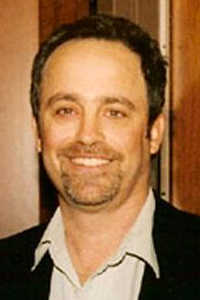

As we celebrate this holiday season, let’s not forget that there are people beyond our immediate circle of family and friends who are suffering, and could benefit from our love and generosity. Over the past two decades, I’ve been able to showcase scores of community organizations on my Triad Today television show, and in the process, I’ve learned that there are several ways we can help these agencies help others. The first is to donate goods. Second is to donate money. And, third is to donate our time. Of course, some nonprofit groups can benefit from all three types of giving. Here, in no particular order, are just a few organizations to which you might lend your support.
Second Harvest Food Bank of Northwest NC: Even prior to the pandemic, the Piedmont Triad had one of the worst food insecurity problems in the nation, and that included the problem of childhood hunger. Now, with thousands more of our neighbors in need, the problem has worsened, including for children. To help alleviate the hunger problem, Second Harvest Food Bank has stepped up its efforts to distribute food to nonprofit agencies who feed hungry people in an 18-county area. The Food Bank has also partnered with a number of area companies to provide meals for kids. You can write a check directly to the food bank, or you can drop off non-perishable food items at a number of locations in our area. For more information call 336-784-5770, or visit SecondHarvestNWNC.org.
Cancer Services, Inc.’s stated mission is “to enhance quality of life for those living with cancer, and to provide the gift of life through education.” Their services include patient advocacy, financial assistance, providing equipment and supplies, offering peer support groups, and much more. Ninety percent of funds donated to Cancer Services, Inc. goes directly to providing client services. In addition to money, you can also donate used equipment and supplies. Call 336-760-9983, or visit CancerServicesOnline.org.
Greensboro Urban Ministry is on the front lines when it comes to providing emergency assistance. Greensboro Urban Ministry provides homeless families in Guilford County with a safe, temporary environment. Volunteers are needed to prepare and serve meals, manage shelters, tutor children, and perform a variety of other duties. Monetary donations are also much appreciated. Call 336-271-5959, or visit GreensboroUrbanMinistry.org.
Mountain Valley Hospice is a nonprofit agency that serves an 18-county area in North Carolina and Virginia, and provides personalized care for patients at the end of life, as well as comfort to families. Mountain Valley Hospice has offices throughout the region, and operates two hospice homes. They also specialize in care for terminally ill children and veterans, and offer grief support for kids and adults. To give money or inquire about volunteering, call 1-888 789-2922, or visit MtnValleyHospice.org.
The Petty Family Foundation: NASCAR legend Richard Petty and his family support a number of charitable organizations including Paralyzed Veterans of America and Victory Junction Camp, the latter of which provides an uplifting experience for children with severe disabilities and terminal illnesses. To make a donation or learn more, visit PettyFamilyFoundation.org.
Shift_ed provides qualified students with college scholarships and much more. Shift_ed also provides students with support services that are designed to help them be successful in life. Their equity-based program begins in kindergarten and includes everything from tutoring to career counseling. Shift_ed relies in part upon donations from companies and individuals. To learn more about scholarships, or to make a donation, visit Shift-ed.org.
Carolina Donor Services and Red Cross… There can be no greater gift this holiday season than the gift of life, and that’s why you might consider donating blood and signing a donor card. Either gesture requires only a few minutes of your time, and will almost certainly result in saving someone’s life in the future. You can reach Carolina Donor Services at 1-800 200-2672, or CarolinaDonorServices.org. You can call the Red Cross at 336-333-2111, or visit them online at RedCross.org.
Please remember that your donations of time, money, or goods to area community organizations are vitally important, not just now, but throughout the coming year. It’s also a way for us to expand the circle of people we care about, and that’s something worth celebrating in this season of giving.



































Posted January 6, 2026 By Triad TodayBarbara Johns replaces Robert E. Lee
Hall of Fame baseball player Johnny Bench once told me that you’re never too old to have heroes. One of mine is Barbara Johns, and I’m proud to say that as of last month, a bronze sculpture of her stands in the U.S. Capitol, replacing a statue of Confederate general Robert E. Lee, and representing the state of Virginia.
Barbara Johns wasn’t just a participant in the Civil Rights Movement, she triggered it. Barbara made her mark before Rosa Parks boarded a bus, before Dr. Martin Luther King Jr. marched, and before the Greensboro Four sat at the lunch counter. Barbara led a national movement for equality, and she did it at the ripe old age of 16.
In 1951, Barbara Johns was a junior at Moton High, an all-Black school in the Prince Edward County Virginia town of Farmville. She was an exemplary student who enjoyed English, history, French, and music, and was a member of the debate team. Barbara was mature beyond her years and had a sense of social justice that was inspired by her uncle, The Rev. Vernon Johns, who, at the time, was pastor of Dexter Ave. Baptist Church in Montgomery, Ala. (he would be succeeded in that role by Dr. King in 1952).
Built in 1939, Moton was a small brick structure designed to hold 180 students, but by 1951, over 450 children were crammed into the school. Not only was the building overcrowded, it was also woefully inadequate for learning. There was no library, no cafeteria, no gym, and no science lab. To alleviate the overflow of students, the Prince Edward school board had several tar paper shacks erected adjacent to the main building. On rainy days, water poured through the leaky roofs, and on cold days, students had to make do with a small stove. The stove was riddled with holes, and hot coals would often pop out onto the floor. By contrast, just down the road stood the all-white high school, which had the best of everything. In those days, the concept of separate but equal was a cruel joke. Schools were separated by race for sure, but they were sure as hell not equal.
Fittingly, the base of the new statue is engraved with this quote from young Ms. Johns, “Are we going to just accept these conditions, or are we going to do something about it?” Well, Barbara did something about it. More on that in a moment.
I began researching the Moton school saga nearly 30 years ago. Barbara had passed away by then, but I connected with some of her family and friends and was able to get a copy of Barbara’s unfinished manuscript soon after it was discovered in 1999. In it, Barbara wrote of the long walks she would take in the woods, contemplating the conditions of her school and of her dreams for a better one.
“I imagined that a great storm came through and blew down the main building and splattered the shacks to splinters, and out of this wreckage was a magnificent building, and the students were joyous. Then the reality would set in, and I would acknowledge that nothing magical was going to produce a new school. I prayed to God, ‘Please let us have a new place where we won’t have to keep our coats on all day to stay warm. God, please help us. We are your children, too.’”
Barbara then wrote about a defining incident that convinced her to take action.
“One morning I was rushing around helping my brother and sister get down the hill to catch the bus, but I had forgot my lunch. I ran back up the hill to retrieve it, but in the meantime the bus had left. Later, the white school bus drove by. It was half empty and would have to drive past my school to get to the white school, but they wouldn’t let me ride with them. Right then and there I decided something had to be done about this inequality.”
The action Barbara took would help trigger a national movement to provide an equal education for all students. On April 23, 1951, she enacted a carefully devised plan. First, she got the school principal out of the building on a ruse, then she enlisted the aid of seven other students to deliver bogus notes to every teacher, advising them to have their students assemble in the auditorium. Barbara then addressed the student body and convinced them to stage a walkout. On the second day of the strike, Johns and a large group of students marched to the superintendent’s office, where Barbara asked why Black students couldn’t just attend school with whites. The superintendent said that integration was against Virginia law, but promised that a new school was in the works for the Moton students. He lied about the new school. Even worse, he punished the protesting students by taking all of their buses out of commission. The strike lasted for two weeks, during which time Barbara received death threats.
Barbara wrote to the NAACP and asked for help. Soon after, two attorneys arrived in Farmville to meet with Barbara and other student leaders. Eventually, their case was folded into Brown v. Board of Education, and by 1959, Prince Edward County schools were ordered to desegregate. But the racist county school board refused to comply, and they got around the law by closing all of their public schools, then opened a make-shift private academy just for the white students to attend. Black students in the area became known as The Lost Generation because they were without a school for five years. Finally, in 1964, all public schools in Farmville were reopened when the Supreme Court ruled that Prince Edward’s racist scheme violated the 14th Amendment by denying Black students equal protection under the law. Still, it would be another 20 years before the county’s schools were fully integrated. Nevertheless, the state of public education had changed forever, and, in large part, we all have a 16-year-old girl to thank for it.
Barbara Johns was a visionary and an activist, and if there was a Mt. Rushmore of Civil Rights leaders, she would be on it. For now, we’ll settle for having her likeness in the nation’s Capitol.
(The original Moton school has since been restored and today serves as a museum and a venue for community events. For more information or to make a donation, visit MotonMuseum.org).